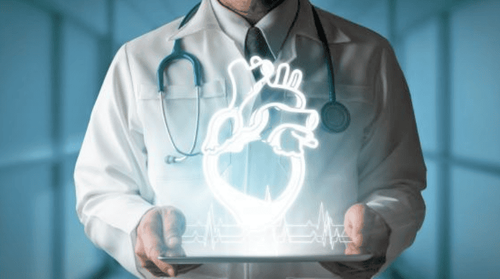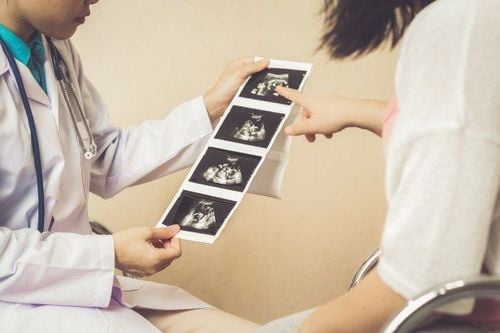This is an automatically translated article.
Video content is professionally consulted by GS, TS, BS. Do Doan Loi, Cardiology Center - Vinmec Times City International General Hospital
The use of echocardiography is very important in the diagnosis and treatment of cardiovascular diseases. An echocardiogram allows doctors to access important information about the structure and functioning of the heart without causing any pain or danger to the patient. The information obtained from echocardiography will help doctors make accurate diagnoses and develop a suitable treatment for the patient
Echocardiography is basically a method of using ultrasound waves from an ultrasound machine - a noninvasive test that looks at the heart in motion, allowing doctors to see how a patient's heart is beating and pumping blood. Through these echocardiographic images, the doctor can find many abnormalities in the heart muscle and heart valves or echocardiogram to evaluate left ventricular function.
Currently, echocardiography is the basic medical method widely used, helping to check for abnormalities of the heart including abnormally large rhythm and size, unexplained chest pain, condition. rapid breathing or irregular heartbeat.
The results of a basic echocardiogram will help the doctor know the size and shape, thickness and movement of the heart walls, how the heart moves, the pumping power of the heart, the heart valves are working. normal, narrow or leak blood....
With basic echocardiography, doctors can see the structure of the heart and check for abnormalities when the heart is working. . Specifics include:
How the heart works, contracts The size and shape of the heart The size and pumping motion of the heart's walls The pumping power of the heart muscle Is the heart valves working properly Are the heart valves narrowed? or open no Tumor, inflammatory mass around the heart valve, heart muscle, blood vessels. In addition, echocardiography also helps doctors diagnose problems with the heart such as:
Problems with the large blood vessels entering and leaving the heart Problems with the heart muscle, the inner and outer membranes Heart Valve diseases Abnormal holes between the chambers of the heart Blood clots in the chambers of the heart. Your doctor will ask you to have an echocardiogram for a variety of reasons, for example when cardiac abnormalities are detected on other tests, or signs of heart disease, or auscultation with a stethoscope. In addition, if the patient has abnormal heart signs such as shortness of breath, chest pain, echocardiography is necessary.
Please dial HOTLINE for more information or register for an appointment HERE. Download MyVinmec app to make appointments faster and to manage your bookings easily.













